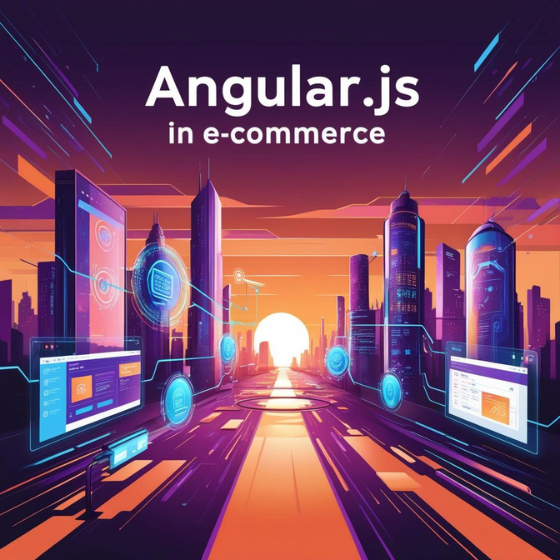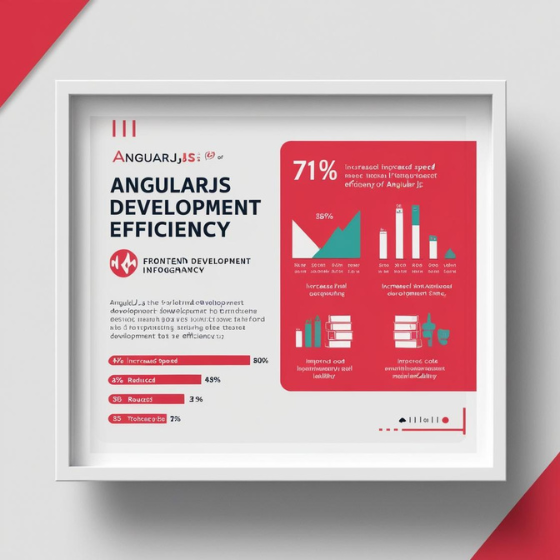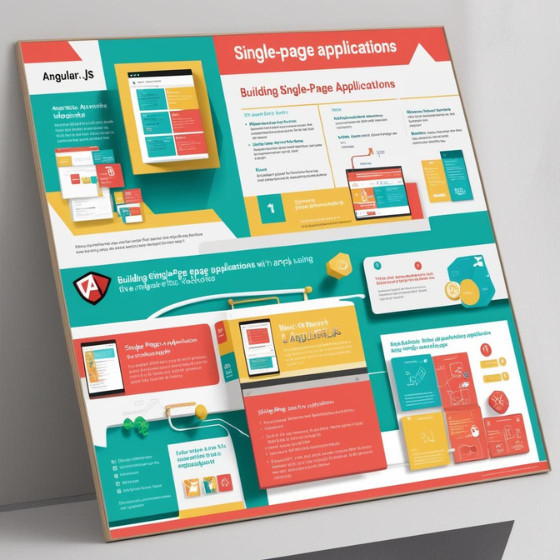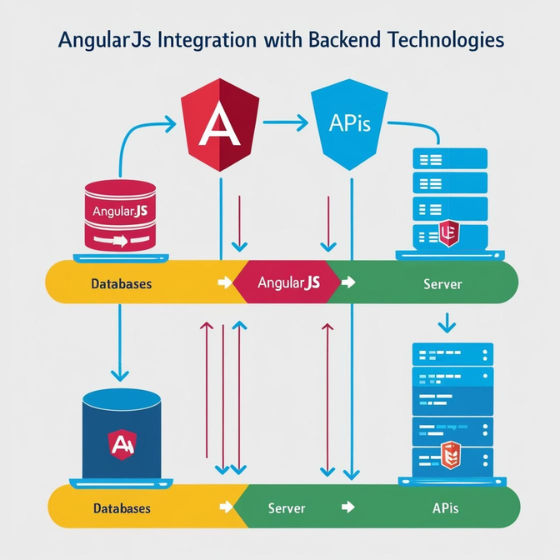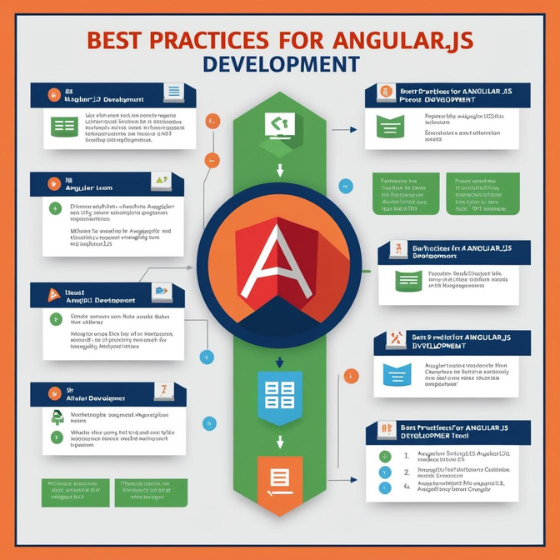The Future of Angular.js in E-commerce: Transforming Online Shopping Experiences
Introduction
Did you know that the global e-commerce market is expected to surpass $6 trillion by 2024? As the digital marketplace continues to grow at a rapid pace, the need for high-performing, scalable, and dynamic web applications has never been more critical. Angular.js, a front-end JavaScript framework, has emerged as a powerful tool for building interactive user interfaces and progressive web applications (PWAs) for e-commerce platforms. But what is the future of Angular.js in e-commerce?
In this blog, we’ll explore how Angular.js is revolutionizing the e-commerce landscape, the role it plays in improving user experience, and why it’s poised to remain a critical component in the e-commerce sector. Whether you’re a business owner, developer, or e-commerce professional, you’ll gain valuable insights into how Angular.js is shaping the future of online shopping.
1. Understanding Angular.js and Its Role in E-commerce
Angular.js is a powerful, open-source JavaScript framework developed by Google. It helps developers create dynamic, responsive web applications. This is especially important for e-commerce platforms that need to provide smooth, real-time updates and interactive shopping experiences.
So why should Angular.js be a priority for e-commerce businesses? First, it enhances user engagement. The framework allows for real-time updates on things like product availability, pricing, and promotions. This ensures customers always have the latest information. In addition, Angular.js supports mobile-first design, which is essential as more people shop on their phones.
Moreover, it allows for seamless navigation between product pages without refreshing the browser. This is particularly useful in e-commerce, where users need to quickly browse through various product categories. Angular.js’ ability to handle dynamic content effectively helps ensure a smooth, engaging experience for customers.
2. The Impact of Angular.js on E-commerce User Experience
User experience (UX) is a critical factor in determining the success of an e-commerce platform. A smooth and engaging shopping experience can drive conversions, while a poor UX can lead to cart abandonment and lost sales. Let’s dive into the specific ways Angular.js is enhancing the user experience in e-commerce.
Real-Time Updates and Dynamic Content
One of the standout features of Angular.js is two-way data binding, which enables seamless synchronization between the front-end and back-end of an application. In the context of e-commerce, this allows for:
- Instant updates on product availability: Customers can see real-time inventory updates without needing to refresh the page.
- Dynamic pricing: If there’s a promotion, discount, or price change, the pricing can be updated instantly without disrupting the user experience.
- Personalized product recommendations: Angular.js can help display personalized recommendations based on user behavior and preferences.
Faster Load Times and Asynchronous Data Handling
Angular.js uses asynchronous loading to load content without reloading the entire page. This makes for:
- Faster page load times: A quicker load time means users don’t have to wait for content to render, creating a better experience, especially on mobile devices.
- Seamless transitions: For users navigating between categories or product pages, the app can fetch data in the background, ensuring a smooth experience without page reloads.
Mobile Optimization and Progressive Web Apps (PWAs)
With mobile commerce on the rise, optimizing your e-commerce platform for mobile users is essential. Angular.js supports the development of Progressive Web Apps (PWAs), which combine the best features of both websites and mobile apps, including:
- Offline functionality: PWAs built with Angular.js can function offline or with low-quality network connections, ensuring uninterrupted browsing and shopping experiences.
- Push notifications: PWAs allow you to send notifications to users, keeping them engaged and informed about sales, promotions, or order updates.
Pro Tip: Explore how Angular.js PWAs can transform your e-commerce platform with Sodio’s Web App Development Services.
3. Scalability and Performance: Why Angular.js is Ideal for Growing E-commerce Platforms
Scalability is a key consideration when building an e-commerce website. As your business grows and traffic increases, your website must be able to handle the load and provide an excellent experience. Angular.js is designed with scalability in mind, making it a go-to framework for large e-commerce platforms.
Efficient Handling of Complex Applications
E-commerce websites often require handling multiple complex functionalities, such as:
- Payment gateways
- Inventory management
- User authentication
- Product catalogs
Angular.js helps manage these complexities by structuring the application in a modular way, making it easier to scale as your platform grows. The framework’s modular architecture allows developers to add new features or update existing ones without disrupting the entire system.
Performance Optimization Techniques
Angular.js also comes with built-in features that optimize the performance of your e-commerce platform, such as:
- Lazy loading: This allows you to load only the necessary components and data, reducing the initial load time and improving performance.
- Ahead-of-Time (AOT) compilation: AOT compiles the application during build time, rather than run time, making it faster and more efficient.
These performance optimization techniques are essential for e-commerce websites that need to handle large amounts of traffic and data, ensuring that customers enjoy a seamless shopping experience even during peak traffic periods.
Pro Tip: If you’re looking to build a scalable e-commerce platform, Sodio’s Angular Development Expertise can help you choose the best solutions for your needs.
4. The Future of Angular.js in E-commerce: Key Trends to Watch
As we look to the future, Angular.js is expected to continue playing a pivotal role in the evolution of e-commerce platforms. Here are some key trends to watch:
Integration with AI and Machine Learning
The future of e-commerce is increasingly intertwined with artificial intelligence (AI) and machine learning (ML). Angular.js is well-positioned to integrate with AI/ML systems that power personalized shopping experiences. From product recommendations to dynamic pricing strategies, Angular.js can handle real-time data exchange with AI algorithms to enhance the user journey.
Voice Commerce and Chatbots
As voice-enabled devices like Amazon Alexa and Google Assistant become more popular, integrating voice search and chatbots into e-commerce platforms will be a key trend. Angular.js will continue to evolve, providing the necessary tools to integrate with voice search and create intelligent, responsive chatbots for customer service.
Increased Focus on Mobile Shopping
With more consumers shopping on mobile devices, the demand for mobile-optimized e-commerce experiences will only increase. Angular.js, with its support for PWAs and responsive design, will remain a top choice for developers creating mobile-first e-commerce solutions.
Pro Tip: Keep up with the future trends in e-commerce by exploring Sodio’s E-commerce Solutions.
Conclusion
The future of Angular.js in e-commerce looks incredibly promising. As online shopping continues to evolve, Angular.js will play a crucial role in shaping the user experience, driving scalability, and enhancing the overall performance of e-commerce platforms. Whether it’s through real-time updates, seamless mobile experiences, or AI integration, Angular.js is well-equipped to handle the challenges of modern e-commerce.
If you’re looking to build or improve your e-commerce platform, Sodio’s Angular Development Team is here to help. Our expertise in creating fast, scalable, and dynamic e-commerce solutions will ensure your platform is ready for the future.
Ready to transform your e-commerce experience? Contact Sodio today to explore our services and take your business to the next level.
